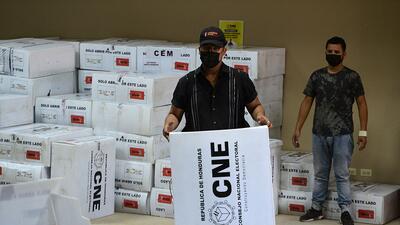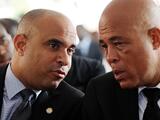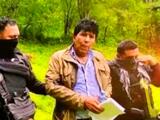Honduran election excludes diaspora votes, could determine outcome

Four years after a disputed election was decided by a margin of roughly 50,000 votes, Honduras is set to elect a new president on November 28 in what most independent observers expect to be a close race between the two primary contenders.
In 2017, the decisive votes were cast in rural areas where the incumbent National Party is strongest and electoral fraud – vote buying and ballot stuffing – is most common. But if this year’s election is decided again by a slim margin, the outcome could be determined by Hondurans who are no longer in the country, and won’t be able to cast ballots due to a unprecedented levels of migration and a scandalous failure to distribute voter identity cards overseas.
Emigration
Over the past four years, emigration from Honduras has far surpassed any previous presidential term in the country’s history. A migration model compiled by the Strauss Center at the University of Texas at Austin estimates that around 450,000 Hondurans permanently left for Mexico or the United States during that period. Tens of thousands more emigrated to other parts of the world, including Spain.
Studies on diaspora voting and the political preferences of emigrants suggest that such a mass exodus could produce an electoral disadvantage for the Honduran opposition.
“From the migrants’ perspective, typically there is an anti-official tendency, anti-incumbent tendency from the period of migration, so if people are leaving the country, they will often times blame the incumbent party, at least implicitly, for the conditions under which they left,” said Michael Paarlberg, an associate professor at VCU who studies diaspora politics.
Migrants mostly oppose ruling party
Although Hondurans have enjoyed the legal right to vote abroad since 2001, access is more limited than at any time since. Honduran emigrants – 99 percent of whom will not be able to vote – are estimated to favor the opposition by as much as a two to one margin.
“It’s about 70 percent (of Honduran emigrants) who are against [the National Party],” said Juan Flores, president of the 15 th of September Foundation, which advocates on behalf of Hondurans living in the United States. “If you leave your country, it’s because you feel that [the government] did not do enough to have a decent life there. [The migrants] carry with them a resentment that they have been practically expelled.”
As one Honduran migrant, Santos Gómez, 38, told Univision Noticias last month while he stopped in southern Mexico on the journey north; “The only way I’d vote for the National Party is if they put a gun to my head and forced me.”
This years' National Party candidate, Nasry Asfura, the popular mayor of Tegucigalpa, is trailing Castro badly in some polls.
50,000 votes
In the past two elections, 65 percent of votes cast in the U.S. went for opposition candidates, but turnout was low due in large part to limited access to voting for the diaspora. “Remember that the current president of Honduras supposedly won with a 50,000-vote margin. Imagine if 200,000 people in the Honduran diaspora had voted, it would have made a big difference,” said Flores.
A deluge of drug trafficking and corruption scandals combined with increased poverty have increased discontent with the incumbent party in the years since.
Looking farther back, the figures become even more stark. The National Party has won the presidency in three straight elections since a 2009 coup ousted President Manuel ‘Mel’ Zelaya, whose wife, Xiomara Castro, is this year’s candidate for a coalition of opposition parties.
Between the years 2000 and 2017, the estimated number of foreign-born Hondurans living in the U.S. more than tripled to an estimated 579,000 people. The vast majority emigrated since 2010, when the National Party began 12 years of uninterrupted and near absolute rule.
Over the past two years, Honduras has undergone a process of purging its voter rolls, requiring citizens to register for a new identity card that is needed to vote as well as realize bank transactions and more. As a result, the electoral census for this year’s election contains nearly 900,000 fewer voters than it did in 2017 – a drop of 14 percent. When taking into account that some 450,000 Hondurans who came of age during the past four years have registered, that means roughly 1.3 million people were eliminated from the voter rolls.
Lost votes
A portion of those who were eliminated are people who have died or simply didn’t register for the new ID card in time. But the vast majority consists of people who have left the country. Not only does that mean more lost votes for the opposition than the incumbent party, billions of dollars in remittances sent by emigrants stimulate the economy and ultimately through taxes provide an influx of cash to the government that is all-too-often used for partisan gain.
Meanwhile, efforts to register Hondurans living abroad have been criticized as grossly insufficient by the diaspora. Only 15,000 people in the U.S. have been registered, compared with over 50,000 in 2017 and despite a greater number of Hondurans than ever living in the country.
The apparent lack of will to undertake a broader campaign to register Hondurans in the U.S. and provide greater access to voting abroad could be due to a recognition by the government that it’s not popular among migrants.
“Parties in power know this, they know that the diaspora, or at least the diaspora that recently left would be against them. So, from the states perspective they would have an incentive to try to demobilize those migrants or at the very least not encourage a very active transnational political participation such as voting,” said Paarlberg.
The issue of the diaspora votes is part of larger concern by analysts over flaws in the electoral system, including corrupt use of public funds to buy rural votes and the data transmission of the vote count from rural areas.
"The system has been set up to fail. It's devised to create chaos," said Eric Olson a veteran Honduras analyst in the United States. Olson and others worry that if the vote is close there could be a repeat of the violent protests that followed the last election in 2017 in which 23 people died and dozens more were injured.
On the flip side, El Salvador’s controversial President Nayib Bukele, hoping to capitalize on his high popularity among Salvadorans inside and out of the country, recently signed into law reforms that could vastly expand voting access and representation for the country’s large diaspora.
The move by El Salvador is part of a global trend to increase voter participation by diasporas and provide them with greater representation. In Latin America, the Dominican Republic, Colombia and Ecuador have already provided their diasporas with direct representation in congress. Across the world, countries that have made wholehearted efforts to increase access to voting for diasporas have seen elections decided by votes cast from abroad.
But for Honduras to follow suit, it will likely take a win by the opposition, a possibility made more difficult each day when hundreds of sympathetic voters leave the country.
“It’s a huge disadvantage,” said Flores, who emigrated to the U.S. in 2007.
“We could have the capacity to decide the presidency,” he added.
Additional reporting by David Adams



